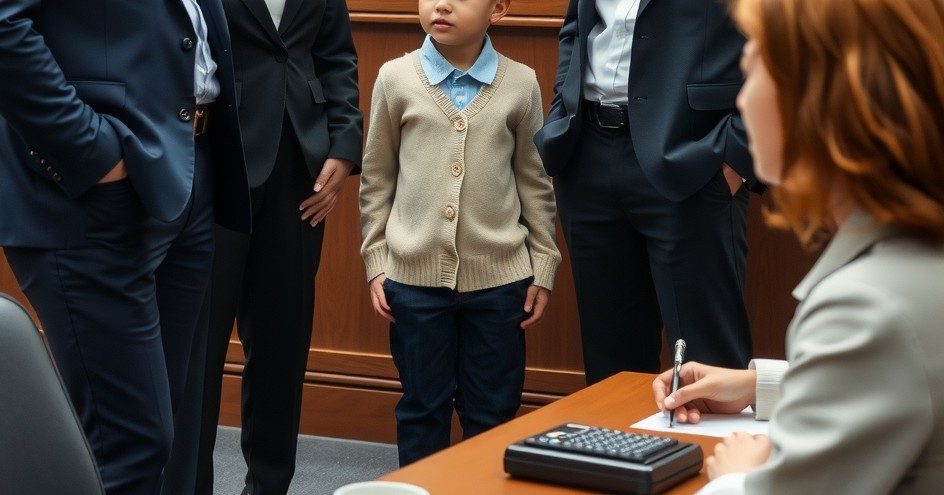How to Handle Parental Relocation After Divorce in Idaho
When the possibility of one divorced parent relocating with the children arises, a new layer of complexity and emotional strain introduces itself. At Brown Family Law, we understand that productive discussions involving your kids’ living arrangements are incredibly sensitive and take both time and effort.
We can maximize your time with your kids by guiding you through the legal processes of family law in a way that aims to reduce your stress, uncertainty, and fear. Get a head start by reading this article, which clarifies how parental relocation is handled in Idaho, some of the main statutes involved, and how to approach this significant life change.
The prospect of moving, or that of your child’s other parent moving, can bring a wave of questions and anxieties. And rightly so, since the impact on a child’s life can be significant.
Considering the Key Impacts on Your Child’s Life
The Idaho Supreme Court has provided guidelines on how courts should determine relocation cases, prioritizing the child’s well-being while also considering the necessity of the move. If you wish to relocate with your child, you must do so with the court’s permission.
There may already be an existing court order or custody agreement that limits your options, except in extenuating circumstances. For example, in Idaho, parental relocation of over 100 miles away or to another state is not allowed. Advance written notice must be given at least a certain number of days — according to your parenting plan agreement or other relevant statutes — before the move as well.
You may still be granted permission to move further away, but approval is not automatic. You will need to demonstrate how such a move will serve the best interests of your child. Furthermore, the court will also consider whether the relocation unduly harms the noncustodial parent’s rights to maintain a meaningful relationship and consistent contact with the child.
Well-being
The overall effect on the child’s life is a primary consideration. The courts will examine how a proposed relocation might affect a child’s:
- Mental and physical health
- Emotional development
- Relationship with both parents
- Existing connections to their community, school, and extended family
Financial circumstances
Your financial circumstances also affect your child, so the court must also consider this. If your move is required in order to seek better job opportunities, then this relocation means that your ability to provide for your child may be enhanced.
As Idaho House Bill 272 dictates, in the event of moves out of state or of over 100 miles of distance, the court will “review the allocation of transportation costs and responsibilities.” The increased cost of travel is to be covered by the moving party and thus adds to that party’s financial obligations, especially if joint physical custody is required in your case.
Stability
The court may approve your move if it will lead to a more stable living environment for the child. Improved educational opportunities or access to specialized medical care, for instance, could weigh in favor of relocation. Another good move might allow the child to be closer to extended family members who can provide connection and support.
Reasons to Adjust Your Child Custody Arrangement in Idaho
When one parent has been designated as the primary physical custodian, the court may lean towards maintaining stability and continuity for the child’s healthy development. Despite this, being the primary custodian does not grant you an automatic right to relocate. The proposed move must still align with the child’s best interests rather than introduce undue disruption.
A nurturing and supportive environment encompasses the child’s overall physical and mental health, educational needs, and social and emotional adjustment to a new environment. The court may consider how well each parent can facilitate the kids’ schooling, ensure access to necessary healthcare, and help them build new connections while maintaining existing important relationships, particularly with the non-moving parent.
The wishes of the child may also be taken into account, especially if he or she is of sufficient age and maturity. Idaho law doesn’t set a specific age at which a child’s preference becomes definitive, but judges may consider the views of older children and teenagers, provided their wishes are well-reasoned and not the result of undue influence from one parent.
Of course, the child’s preference is just one factor among many. Brown Family Law can present your situation clearly to the court, highlighting what is best for your children while striving to protect your parental role.
Communicating With the Other Parent During Relocation
Communication with your ex-spouse may be challenging, and a move can be unsettling for children. Seeing their parents navigate this change with maturity and cooperation can make a world of difference to your kids’ adjustment and emotional security.
Idaho courts strongly encourage cooperation and collaboration between divorced parents. When parents can work together, even amidst the challenges of a potential relocation, it signals to the court that they are prioritizing their child’s needs above their own and are committed to fostering the child’s best interests.
Mediation can be a valuable tool to facilitate collaborative discussions and reach common ground.
When relocation is being considered, maintain open lines of communication from the outset. You must notify the other parent of your intent to move — ideally, before even going to a judge; however, more is necessary. Discuss the reasons for the move, the proposed new location, and, most importantly, the potential effects on the children’s lives.
If parents can come together to create a plan that they both feel is workable and fair, placing the child’s needs and interests above all else, then disruption to the child’s routine and unnecessary conflict can be minimized.
This child-centered approach aligns perfectly with our philosophy at Brown Family Law. We aim to help parents find solutions that preserve their relationship with their children and reduce the emotional toll of legal disputes.
Planning Your Move: Next Steps, Especially With Primary Custody
Successful relocation planning goes far beyond the logistics of moving boxes. Try to take the following steps:
- Consider your children’s well-being and adjustment to a new environment carefully and thoughtfully: This phase is critical, whether you are the parent proposing the move or the one responding to a proposed relocation. Prioritize your kid in making your final decision.
- Consult a local family law attorney: A knowledgeable divorce lawyer with a thorough understanding of Idaho’s laws can clarify how to go about your move. His or her guidance can help you understand your legal obligations, assess the strengths and weaknesses of a potential relocation request, and navigate the legal procedures ahead of you.
- Evaluate the potential impact of the move on the kids’ lives and overall well-being: Take an honest look at factors such as age, maturity, existing bonds, and ties to their current community. Consider both the benefits and drawbacks emotionally, physically, financially, educationally, and more.
- Work collaboratively with the other parent: Do this as far as possible. When parents work together, they may be able to create a relocation plan that minimizes disruption to their finances and their children’s lives.
- Use mediation and/or seek a court order: Mediation can help both parties find common ground, even in complex situations. Open discussions and a willingness to compromise can go a long way in easing the transition. However, if mediation fails, then the case can go to court.
Seek professional guidance as well. Having an attorney by your side can make a difference in the final outcome and smooth things out along the way.
At Brown Family Law, our family law attorneys are committed to helping our clients approach these situations with clarity, aiming to determine the most sensitive way forward for any change to primary custody arrangements or visitation.
Moving Forward With Your Child’s Best Interests at Heart
Parental relocation after a divorce is undoubtedly one of the most challenging issues a family can face. Your decision will have a lasting impact.
At Brown Family Law, we recognize the profound emotional weight these situations carry. You may feel overwhelmed, but engaging with your ex-spouse through constructive dialogue or formal processes can offer a less adversarial way to resolve disputes.
Contact our law firm to find out how we can further smooth out any other bumps in your path. We are committed to helping you maximize time with your children and do right by your kids. So if you are contemplating a move or facing the prospect of your child’s other parent relocating, we encourage you to seek our divorce advice.








